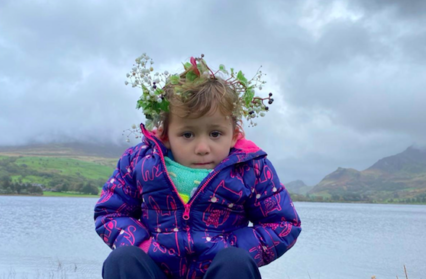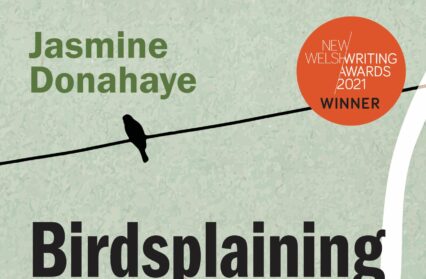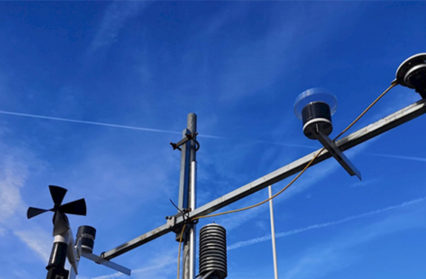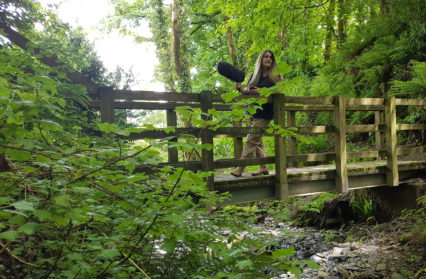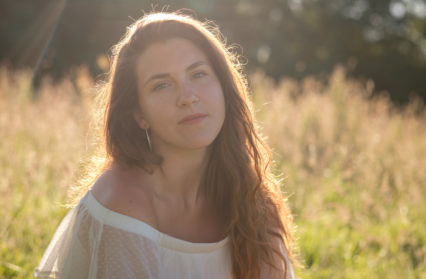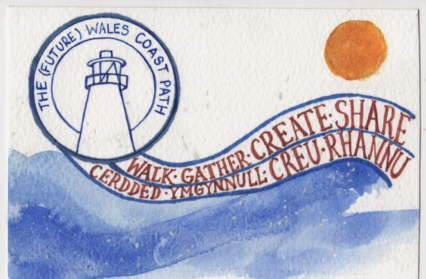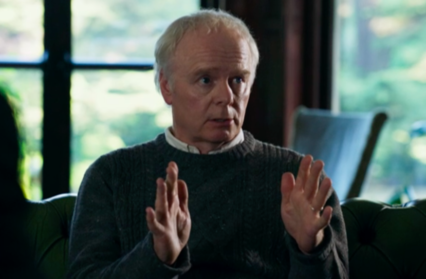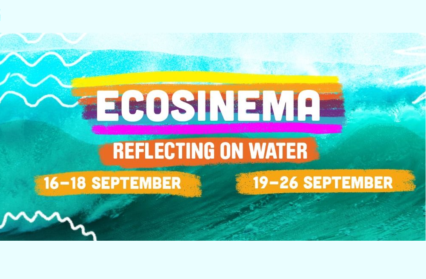On the last day of COP26, the Future Generations Commissioner for Wales is hosting an intergenerational event, ‘Climate, in the Visceral Sense — An Ongoing Story in Three Acts’, to encourage other countries to include culture in their definition of sustainable development and to limit the impact of the climate and nature emergencies on future generations.
Today, Sophie Howe hopes to inspire policy makers and others to value the role that creativity can play in responding to the climate and nature emergencies.
Wales’ Well-being of Future Generations Act, which puts a responsibility on public bodies to protect those not yet born, made Wales the first country to include culture in its definition of sustainable development – placing value on the power of art to improve a person and community’s well-being.
The commissioner is in Glasgow today to encourage other countries to follow, and legislate to limit the impact of the climate and nature emergencies on future generations.
The event, ‘Climate, in the Visceral Sense — An Ongoing Story in Three Acts’, is a collaboration between the commissioner, Wales Arts International; Eisteddfod Genedlaethol Cymru; global design studio IDEO; Size of Wales; arts project, Ynys Blastig, and Taylor Edmonds, a 26-year-old poet from South Wales who became the commissioner’s second Poet in Residence this year, and is open to the public at COP’s Green Zone. Visitors will hear stories from communities across Wales and their creative responses to the climate crisis, including an ‘unfinished poem’ performed by Edmonds, which draws on reflections from visitors to COP26.
A short film, Blot-deuwedd, sees children aged five to eleven from Ysgol Rhosgadfan in Caernarfon adapt a story from the Mabinogion to inspire the protection of nature. Six-year-old Hana Hughes plays the main character and the film follows her story as she introduces the whole school to nature by following in the footsteps of mythical character, Blodeuwedd, a central figure in the Mabinogion, who was made from flowers.
The film’s director, Iola Ynyr, of Ynys Blastig, said she wanted to show the power of nature and how we can all take little steps to embrace our surroundings, cherish the nature around us and reduce our carbon footprint. ‘I had the idea of creating a film that showed how we can sometimes feel like insignificant ‘blots’ in our world, not sure where we fit in and how embracing nature can make us feel whole again,’ explained Ynyr. ‘The blot also represents the carbon footprints created by the way people are living, not considering its effect on nature… COP26 is such an important event, and we feel passionately about the concept of ‘think local, act global’. We all have our small part to play, and our mission is to get local children in north Wales to take action, within their area, to reduce the use of plastics and re-discover the beauty of nature.’
Visitors will be gifted seeded paper from the young children in the film, to plant at home and continue the story.
The first Future Generations Chair, created and designed by craftsman Tony Thomas, in partnership with the Eisteddfod Genedlaethol Cymru, will also be unveiled — a nod to the chair awarded to poets in a historic Welsh cultural tradition and featuring words chosen by campaign group, Climate Cymru.
A discussion will include Jenipher Wettaka, vice chair of a farmers’ cooperative in Uganda, and Valerie Wood-Graiger, an eighty-year-old climate activist from Myddfai in Llandovery.
‘Wales is one of the only countries world-wide to place cultural well-being as a statutory responsibility on public bodies as part of Wales’ world-leading legislation, the Well-being of Future Generations Act,’ said Howe. ‘Protecting our planet means protecting our heritage, language and culture, and I’m calling on all countries to fully integrate culture into their climate change policies and strategies and support cultural approaches to tackle complex issues. Wales is proud of storytelling and creativity — and throughout history, arts and culture communities have looked for new ways to work beyond their traditional remits, in highlighting and addressing social inequalities, loneliness and isolation, mental health and community cohesion. It’s now time to build on what we know about the power of culture and use it to address the climate crisis.’
To find out more about this morning’s ‘Climate, in the Visceral Sense — An Ongoing Story in Three Acts’, visit the COP26 website.



